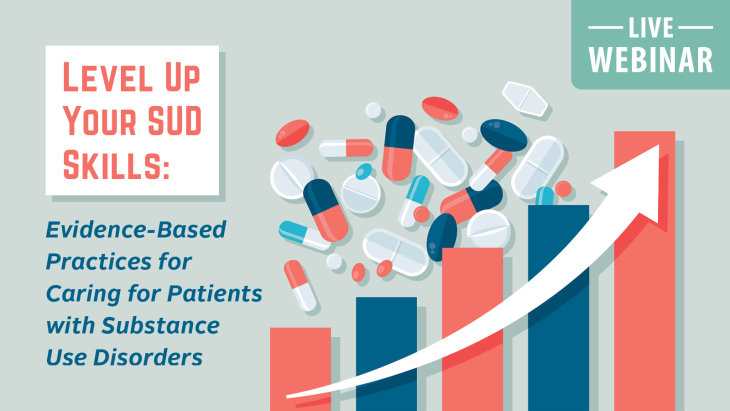Level Up Your SUD Skills: Evidence-Based Practices for Caring for Patients with Substance Use Disorders

Location
Dates & Times
Contact
Do you have event related questions or need help with registration?
This four-part training series is designed by an interdisciplinary team of experts to empower clinical teams to provide evidence-based, patient-centered care to those experiencing substance use disorders. Throughout this series, we will explore foundational concepts in substance use disorder screening and treatment, medication for opioid use disorder, and the intersection of substance use treatment and perinatal healthcare. Discover best practices for harm reduction within clinical settings, gain insights into current trends in substance use, understand safe prescribing guidelines for opioid use disorders, and identify evidence-based treatment recommendations for pregnant women with substance use disorder.
This program was designed to satisfy, in part, the North Carolina Medical Board's CME requirement for controlled substance prescribers. Per NCAC rules: As of July 1, 2017 all physicians (other than residents), physician assistants, nurse practitioners, podiatrists, and dentists who prescribe controlled substances must satisfy the controlled-substance prescribing CE requirements as set forth by their licensing boards; requirements vary by discipline and board.
This training initiative is supported by funds from the North Carolina Department of Health and Human Services through the Center for Disease Control and Prevention (CDC) Cooperative Agreement Number NU17CE925024.
